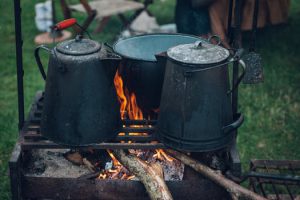
Food planning for a boundary waters canoe area trip is no small thing. My BWCA trip for May is coming fast, and recently I have been thinking about the food I should bring with me. I plan on doing some fishing, mostly going after lake trout, with the intent to cook up a few for eating. But I don’t plan on consuming only fish. In fact I only plan on eating fish for a couple meals.
The plan is to spend four nights in the wilderness. I will need to bring with me enough for four full days, plus half of another day. While I do plan on catching fish to eat, it’s not a guarantee I will in fact catch anything (not likely, I have been fishing every year of my life since I was four). So I plan on bringing enough food to cover all meals, just in case.
Food Planning For A Boundary Waters Canoe Area Trip
The way I see it, I have three solid options for my meals; bring along easy to carry freeze dried food such as a Mountain House brand, bring along fresher, bulkier and heavier meal prep items (bacon, bread, eggs, potatoes, peanut butter, summer sausage, etc… you get the idea) that I buy and pack and cook, or buy a food meal plan from the outfitters I plan on renting my canoe from.
As for the last that was mentioned, some outfitters will provide full meals. You can usually choose between freeze dried meals or fresh food meals. They will pack them for you and provide everything you need to prepare their meals, including a propane cook stove, dishes, and all the fixings!
Freeze dried meals pack smaller and lighter, which is nice. But there is something to be said about eating fresh food even though it tends to be more of chore to haul such food items into the BWCA.
As mentioned in other posts I plan on base camping. So packing in some extra items, such as fresh food, may not be that much of a hassle. I only plan on portaging into the BWCA two lakes, and the portages are short. So it might be nice to bring in some fresh food. But do I want to haul in all fresh food for every meal, or just for a handful of meals? I can easily split up my food between freeze dried and fresh if I so choose.
Freeze Dried Food Versus Dehydrated Food
You may have seen food packs at outdoor stores that say either freeze dried or dehydrated. There is a difference between the two.
Dehydrated Food: The dehydration process removes around 90-95% of the moisture content in the food.
Freeze Dried Food: This process removes around 98-99% of the moisture content in the food.
The big difference between the two is the storage longevity between the two. Freeze dried food has a longer shelf life of 25 to 30 years. Dehydrated food will store for around 15 to 20 years.
Is Outfitter Supplied Food Expensive?
I guess it depends what outfitter you use. The one I am looking at using, which I will name later after I make my canoe rental reservation for my May trip, is actually pretty affordable. They have a menu selection process on their websites you can use to select what each and every meal will have, along with beverage types.
The food on the menu I checked out was fairly elaborate camp style foods and snacks. Enough to keep you full and running on energy.
Breakfast items included bacon, eggs, oatmeal, granola, biscuits and gravy, hash-browns, and cereal with milk to name a few.
Lunch items consisted of wraps and sandwich type fare; summer sausage, P&J, tuna etc…, but included brats as well as Mac & Cheese choices.
Dinner selections included chili, steak, brats, beef stroganoff, spaghetti, various side dishes, as well as desserts.
On top of all that you get to select some beverage and snack choices through the day. The outfitters would supply it all to me in a separate carry device, such as a food barrel pack. The cost for food through the outfitters if I do the food with canoe rental would be around $100 for 5 days ($20 per day).
Freeze Dried Camp Food Costs
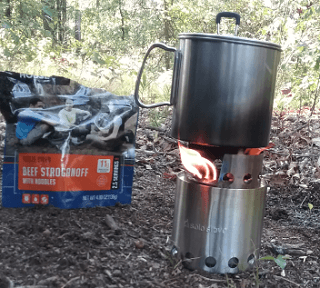
I checked online with Amazon for a variety of dehydrated and freeze dried camp foods. I am familiar with Mountain House, as I have eaten their freeze dried food before, and like it.
Costs of supplying myself with only freeze dried meals through the day would be around $120 for five days ($24 per day).
The thing about dehydrated and freeze dried meals is that they pack super light. You just need to boil water and add it to the food pouch for several minutes to re-hydrate the food. I usually use my Solo Stove to boil up the water.
The cooking preparation is very easy. The only item to get washed after such a meal is your eating utensil, and there is little trash left over to haul out – just an empty plastic food pouch.
While it costs a little more than fresh food, freeze dried food certainly has its advantages. And like I said above, I like the taste of it. I wouldn’t want to live on it for more than a handful of days, but it does get the job done of keeping a person fed and feeling full.
You can even get side dishes and deserts to go along with your main course entree. Mountain House makes great freeze dried food, and has some great prices over on Amazon.
What Will I be Taking With Me For Food On My BWCA Trip?
I actually plan to bring some fresh food as well as freeze dried food. On top of that, I plan to bring a few items I will need to cook a couple fish meals: A small 8″ camp fry pan, a small plastic container of cooking oil, and some shore-lunch mix. I also plan to bring some tin foil and wrap a couple trout fillets with onion, butter, potatoes, and some spices and cook them on the fire hobo-style.
Aside from that, I plan on bringing in a steak to eat my first night in camp. My first morning in camp I will have some bacon and eggs. A morning meal of flapjacks is always a treat while camping as well. Those items will be easy to pack in and will get eaten first.
My other meals will be Mountain House food pouches and some small snack items such as nuts, granola bars, dried fruit, and some jerky.
I’m not going to utilize the food supplied by the outfitter at all. I can pack all the food I mentioned above into a single food pack that will fit inside my SealLine 115L pack. The fresh food I will eat with 24 hours of being in the BWCA. The fish, if I am lucky and skilled enough to catch some, and I should be, will supplement a few meals during my trip. The freeze dried food will cover everything else, and I’ll bring one or two extra in case I don’t catch fish.
Of course I’ll also be bringing along some some pre-prepped ingredients for making bannock bread as well!
UPDATE: 5/8/19, check out my review of Keto friendly dehydrated food by Next Mile Meals when clicking here.
TD



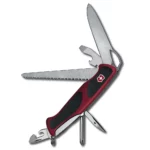
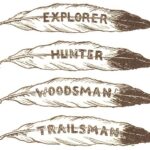
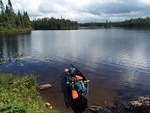
Have you looked at Cache Lake Foods, some very good products.
Hi Dave,
Nope, I can’t say that I have – But I am open to trying new things. Eating while camping, especially on a Boundary Waters Canoe Area trip, can really make or break a trip. I just checked out their website – looks pretty good!
TD
Great, I really found your article on the food planning for a boundary canoe area trip very informative. The family and I do quite a lot of camping in the summer months here in North Dakota and this information on the freeze dried food was very helpful. I plan to put many of the tips you covered here on our many trips this 2018 season. Great information and very grateful, you have saved me some money.
Thank you,
JesusB
Hi Jesus,
Thanks for reading and the nice comment. I’ll probably be reviewing my food menu for my BWCA trip a few times between now and when I go, but I think I got it nailed down. Mostly going to be the freeze dried food to pack in light, then supplement my meals with fish I cash.
TD
I do a bit of camping myself and find the dehydrated and freeze dried meals are the best for me because they’re very light weight. They might cost a bit more but for convenience sake, definitely worth it. I would love to have fresh trout everyday and the thought of that just makes me drool. I usually purchase my meals locally at an outdoors sports shop and never on Amazon. I’m definitely going to be checking there… I think the prices on Amazon will be cheaper too. Thanks for the info.
HI Monica,
I tend to use the freeze dried foods often as well… lighter to carry, they take up a lot less space, and they are to prepare with little cleanup required.
I am eagerly looking forward to my Boundary Waters Canoe Wilderness trip – one less thing for me to worry about is the food I am taking along!
TD
I love your website! This was a great article. My family loves to go camping and we often go on rafting trips. I feel I have gotten better with meal planning over the years but I am still spending too much money. I have been wanting to find better solutions and this has helped me. Thanks and I look forward to seeing future posts!
Hi Nicole,
Thanks for reading and commenting. Good luck on your future outdoor trips. I am eagerly looking forward to the spring time getting here…
TD
Hi TD,
Awesome article!
I often go camping with my family and friend, and we always bring fresh food with us. We need at least three cars to carry everything; it’s crazy! I said to my husband that we need to find a solution to this and here I found it! The freeze-dried food is a fantastic idea. I just would like to know if it’s as tasty as fresh food? I have tasted the freeze-dried food:). Also, I’ll check the solo stove; it looks efficient to use!
Thank you for this excellent post!
Hi Daniella,
Some people like the freeze dried food, some don’t. I would suggest giving it a try before going camping. There are a lot of selections out there with many brands to decide between. I like most of what I eat, but there are a food courses that just don’t sit well. It can be trial and error. My next trip I plan on bringing some fresh food along for the first couple meals, then switch over the Mountain House freeze dried foods and the fish I catch to sustain me for the next couple days.
Spring is fast approaching, and I eagerly looking forward to my first BWCA trip of the year.
TD